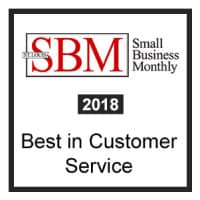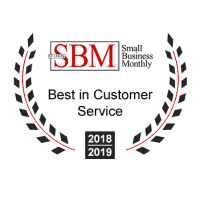
Good SEO encompasses a ton of little details, and it starts in one of the more unexpected places out there—the top of your page. More specifically, the search address bar in your internet browser! One element of effective optimization that many digital marketers overlook is that of well structured URL's for their content. While this isn't the magic bullet that's going to necessarily make or break your site for rankings and traffic, it does play a part in SEO, and also effects how potential customers perceive your site.
What are some ways you can improve the URL's for your site? Take a look below at these 3 tips, and incorporate them into your overall strategy!
When we glance at a URL, we like to get an idea of what to expect. This idea of accessibility is important to us as people because it makes determining the content we view an easier process. Thus, if we see the page we're getting linked to is about ultimate cat facts, we're going to perceive the destination more favorably than something with a random jumble of letters.
For robots, and SEO purposes, having your keyword (or main topic idea) in the URL is seen as a signal for search engines when determining what content to show users, which is why it's a good idea to have a more readable address.
Think about a time when you were describing a specific page of a website to a friend. Maybe you shared it with them on social media, or simply told them the URL to visit. Generally speaking, it is always preferable to have a shorter URL (50-60 characters or less) than a longer one (100+ characters). While search engines don't care about parsing long URL's, we tend to see shorter URL's better from a user experience standpoint. They are easier to copy and paste, especially for mobile users, as well as being easier to embed.
If within your CMS you have a "services" section that goes to a "services" subsection page, you wouldn't want the URL to look something like:
www.website.com/services/services.php
This just comes off as repetitive and spammy! A better idea would be to rename that specific page, to something like "web-services" or another variation of the word that isn't the exact same.
What other URL tips do you swear by?
Send us a comment on Facebook or a tweet to @SeafoamMedia with your thoughts!
 Think back to when you were a child. Did you grow up singing and reciting along to the alphabet song? If you were raised in just about any average household in America, there's a good chance. This tune has long since been a tradition for children, popping up in everything from school lessons, to toys, and television shows, all of which are dedicated to exposing young minds to the alphabet through repetition, building their memory and knowledge.
Think back to when you were a child. Did you grow up singing and reciting along to the alphabet song? If you were raised in just about any average household in America, there's a good chance. This tune has long since been a tradition for children, popping up in everything from school lessons, to toys, and television shows, all of which are dedicated to exposing young minds to the alphabet through repetition, building their memory and knowledge.
Now, flash forward to the present. As an adult in digital marketing, there's actually another alphabet you should get acquainted with! Unfortunately, the one we're about to show you doesn't come with a catchy jingle to help you remember. At least, no one has stepped up to write a tune yet! However, it does contain a wealth of knowledge related to an incredibly important topic for digital marketers: content marketing.
Content marketing has become the de facto buzzword in the industry, and more and more businesses are starting to see why it is so important for their success. On a basic level, they understand that they need it in some shape or form. What they don't see is that content marketing has many layers to it. To use another grade school analogy, if you think of content marketing like the layers of the Earth, far too many business owners believe content marketing is just the crust. They call it a day after writing a blog post and sharing it on social media, without ever bothering to see what lies beneath. In reality, truly effective content marketing goes much deeper than that, taking into consideration things like testing, eye catching headlines, and building targeted landing pages.
To get a feel for the many layers that make up content marketing, the folks at Instapage have whipped up a checklist using the entire alphabet. Best of all, it is in a convenient infographic format! Take a look below and familiarize yourself with all of these elements. Is your business focusing on these when doing content marketing? If not, you may want to head back to the classroom, so to speak, and brush up on your ABC's!
Was there anything else you'd add to this alphabet?
Send us a comment on Facebook or a tweet to @SeafoamMedia with your thoughts!

As you take a sip of your morning coffee and read another great article on your favorite website or blog, do you ever stop and wonder what went into creating that piece of content? Perhaps you think to yourself, "Huh, I need an idea like that for my own site!"
The truth is, brainstorming content ideas that are relevant and engaging isn't a cake walk (and if it was, it'd be the kind no one wants to mess with, like fruit cake). Plenty of writers spend more time than they should going over a pile of ideas, banging their head against the wall, procrastinating, and then finally coming up with a polished masterpiece for us all to enjoy. If you find yourself running out of ideas for things to write about on your own website and getting stuck in the "banging your head on the wall" part of the writing process, you might benefit from these tools below! They are designed to help inspire you for topics, and can be a great asset if you are tasked with creating new content on a daily basis.
Once we discovered this tool, we affectionately began referring to it as the "Blog Topic Generator-o-matic". This is because it's incredibly easy to use. You type in a few different nouns to give it a broad idea of what your writing is about, and it spits out topics with eye catching titles. For a random topic generator, it may not be perfect, but it is a great way to get that initial inspiration that helps get your creative spark going.
Similar to the Hubspot tool, Tweak Your Biz lets you type in a noun or verb pertaining to a topic you're writing about, and it gives you a large list of ideas to work with. What makes it different is that it categorizes the topic ideas things like "How To" titles, "Lists", and so forth, giving you a huge amount of ideas to work with!
Ask and ye shall receive. The beauty of using Quora for website content ideas is that it works like a big social network, only dedicated to helping people answer questions about specific topics. The best answers get voted to the top, essentially crowdsourcing the top opinions on certain things. Why use Quora? Search for keywords and see if anyone is talking about the particular topic you're interested in. Alternatively, you could come up with your own answer to a question, dedicate a piece of content to it, and then link back to it from Quora!
Do you use any of these tools? What other ones do you suggest?
Send us a comment on Facebook or a tweet to @SeafoamMedia with your thoughts!























